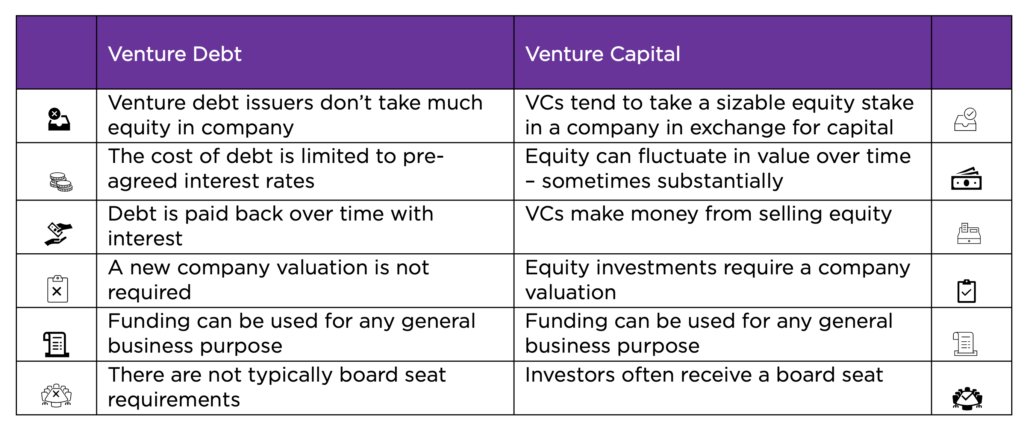
The oxymoron of Venture Debt is not lost on us. Whilst Venture has historically been synonymous with high risk, debt signifies the opposite. It is for this reason that during times of inflationary pressure, diversifying your alternative portfolio into debt funds makes sense.
So what is Venture Debt? Put simply, Venture debt is debt provided to venture-backed growth companies. Venture debt financing is generally structured to yield 13-15 per cent interest rates with a 3-4-year repayment period. Almost all providers structure an equity upside in the form of warrants which is normally about 8-12 per cent of the debt. The interest income gets distributed typically on a quarterly basis enabling consistent returns to investors in the form of fixed income.
Many wealth managers have been looking for a way to counter the diminishing returns on traditional fixed income and historically it has been difficult to justify a move from the relative safety of FI into alternatives. Venture debt could be considered the bridge to attractive returns at a lower risk profile to standard Venture capital. This idea is backed up by Christophe Caspar, chief executive officer, Edmond de Rothschild Asset Management. “With inflation becoming a theme again, these strategies keep their pricing power.”
In a time of rising equity prices other methods of creating alpha have been somewhat overlooked. However, debt can be an important part of any portfolio. It has the ability to cushion market downturns and support periods of market volatility. The financial crisis of 08-09 and early 2020 both point to better performance than equities and with markets trending towards real or inflation-adjusted interest above long-term averages this is an attractive investment opportunity to generate regular income and upside potential.
According to the 2022 Preqin global private debt report, private debt has experienced an average annual growth of 13.5%. Data provider Preqin forecasted private debt will accelerate to a compound annual growth of 17.4% between 2022 and 2026.
With the rising cost of living, companies have and will continue to turn to venture debt to help them quickly adapt to new market conditions or as a way to avoid raising from VCs at a reduced valuation due to a period of stagflation. With the market trending like it is, Venture debt is certainly a consideration for any diversified portfolio.


Contact james.corry@treblepeak.co.uk for more information on Venture Debt products currently available on Treble Peak.



